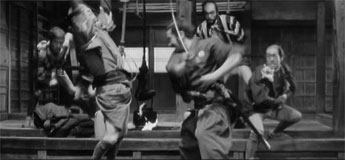
People keep bugging me about them, so now I'm gonna bug you. Here are some myths and fallacies about voting I don't much fancy.
1.
If you don't vote, you have no right to complain!
That's obviously untrue. Everyone has a right to complain about anything they want, regardless of what they do or don't do. It's called the freedom of speech, and it's secured in the first amendment.
1a.
Yea? Well, if you don't vote, I don't have to listen to you complain!
No one has to listen to anyone to complain, unless you have some weird masochistic impulses you need to work out.
1b.
Fine, but if you don't vote, I personally don't think you should complain!
Obviously. You're entitled to that opinion, but in terms of its actual truth value, it has as much merit to it as saying you shouldn't complain if you DO vote: none. It's an opinion, not a law. There are things I think people shouldn't do, but they do them. That's life.
2.
Your vote makes a difference!
In terms of the presidential election, no, it really doesn't make any meaningful difference. Take my case; I live in New York.
Browse http://electoral-vote. com/ a little, and you'll discover that outside of Hawaii and Washington DC, New York is Obama's strongest state. My participation or lack thereof isn't going to change that.
I'll push it even further to say that your vote won't make a meaningful difference in the most swinging of swing states. The chances of your one vote being the deciding factor are astronomically small. People will cite the 2000 presidential election, saying the election was decided by 537 people. Last time I checked, 537 > 1, and by a considerable margin. You can cut it as close as you like, walking into the booth with the expectation that it might come down to your vote has no support in reality.
2a.
Yea, but the popular vote! Every vote is needed to show by how much or how little the victor won or the loser lost!
No. The significant factor of the difference between the two main candidates is in the millions, or possibly in the hundreds of thousands. Your +1 on either side or the absence of it is purely a matter of trivia.
3.
What if everyone thought like that and didn't vote?
If everyone thought like I did, we wouldn't need to vote — we'd all just agree with each other. Of course, that's stupid, and the characteristics of that imaginary situation shouldn't be applied to reality. Why should the characteristics of the imaginary situation of no one voting if I decided not to be applied to reality either? The fact is, whether or not I vote isn't going to change whether anyone else votes or doesn't.
4.
If I don't vote, Puff Daddy will kill me!
I can assure you he won't.
5.
People have died so I could vote!
Just because people have died to secure your rights doesn't necessitate that you practice them — you have the opportunity, and that's really the idea. There is a multitude of rights you have for which people have died.
Do you own a gun on the basis that people died to preserve your second amendment right? What about the right to a fair trial? If I don't ever go to trial in my life, is that a spit in the face of the people who worked so that I can have that opportunity?
Everyone who's fought and died for a right has done so to provide an option, not a mandate. A right is a choice, and making the decision between whether to practice that right or not is an expression of the freedom it affords you. If it weren't a matter of choice, as the pressure imposed by the line of argument in question might suggest, then it isn't a right; it's force. Vote or don't, but don't make that the reason why.
I'm not all against voting, though. There are some reasons that I feel don't particularly suck.
Here are a few:
1. It's fun.
That's really up to you, but if you're into politics and the like, then it's a pretty neat way to have some level of involvement.
2. So you can say you can voted for McCain/Obama/etc.
If you' enjoy saying that sort of thing, voting for the candidate would make that a factually accurate statement.
3. Because whether it makes a difference or not, you simply like being a part of something.
Sure, that's your prerogative. Basically, any reason that roots itself in a personal preference toward the act of voting in and of itself, it's never really invalid.
4. Because you support our system of democratic government.
This is really the strongest reason, I think. If our democratic government is something you want to stand by, then you should vote. A democratic government thrives on the collective voice of its people, and every vote is a key part of the process. Whether your input makes a difference or not should be irrelevant; support of a system of democratic government and participation in it, from any logical standpoint, go hand in hand.
So vote, or don't. It's your worldview, not anybody else's. There's nothing inherently wrong in whatever conclusion you draw — just don't come to your conclusion falsely.
Most reasons for voting: Two Thumbs Up


My reasons: Four Thumbs Up







